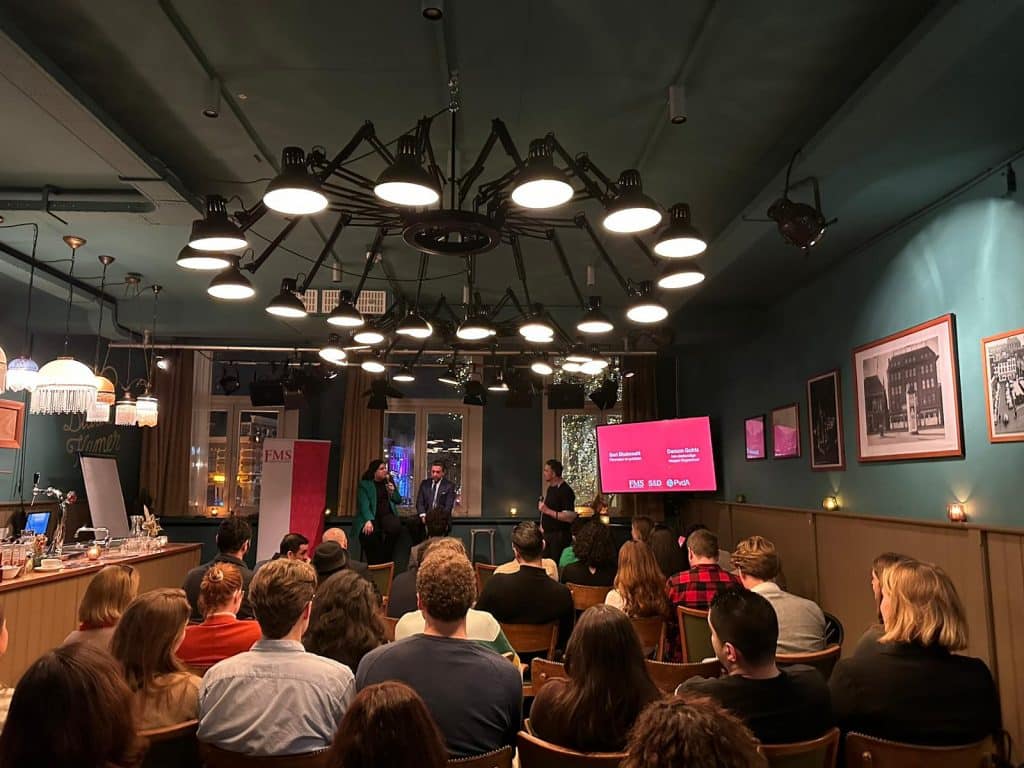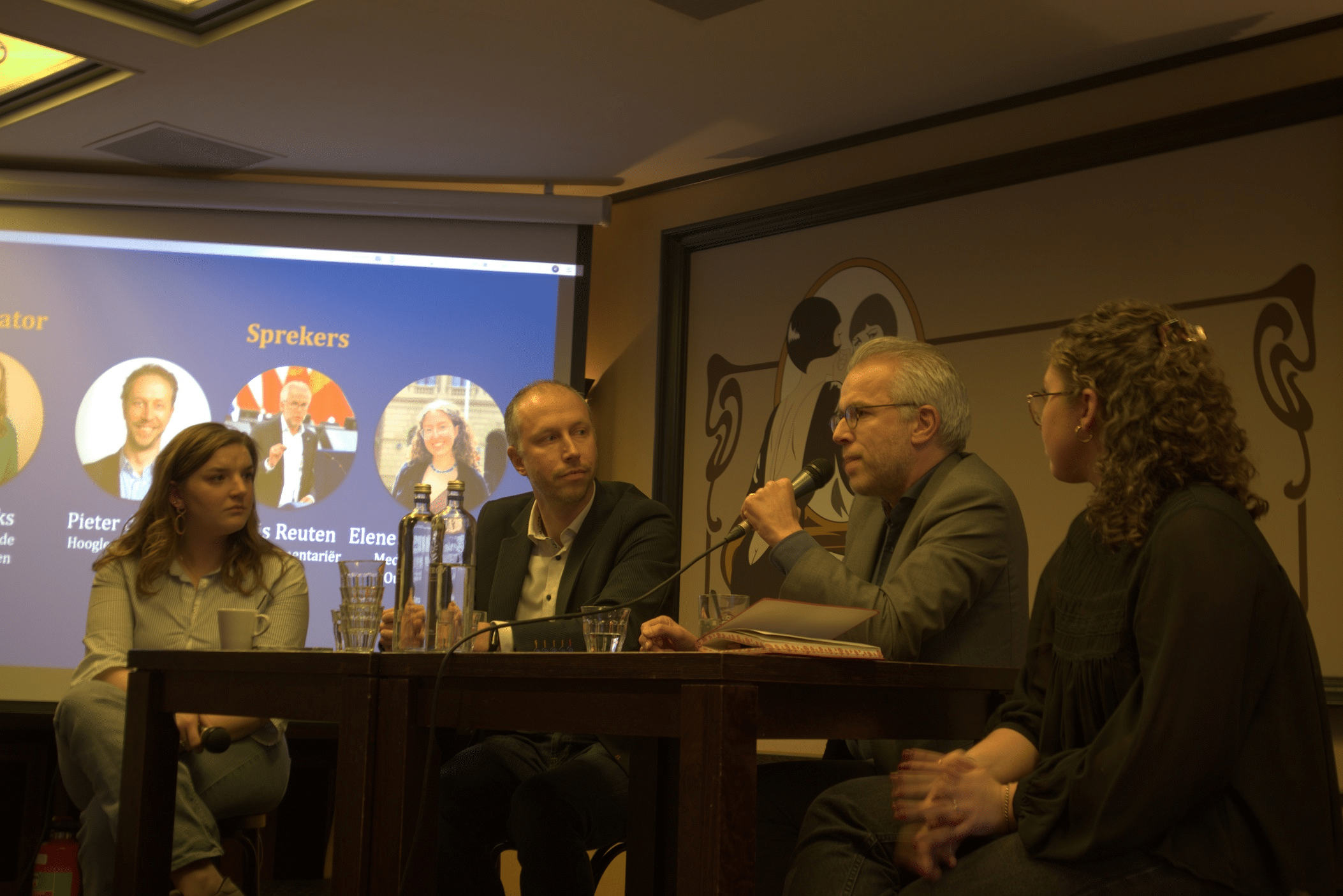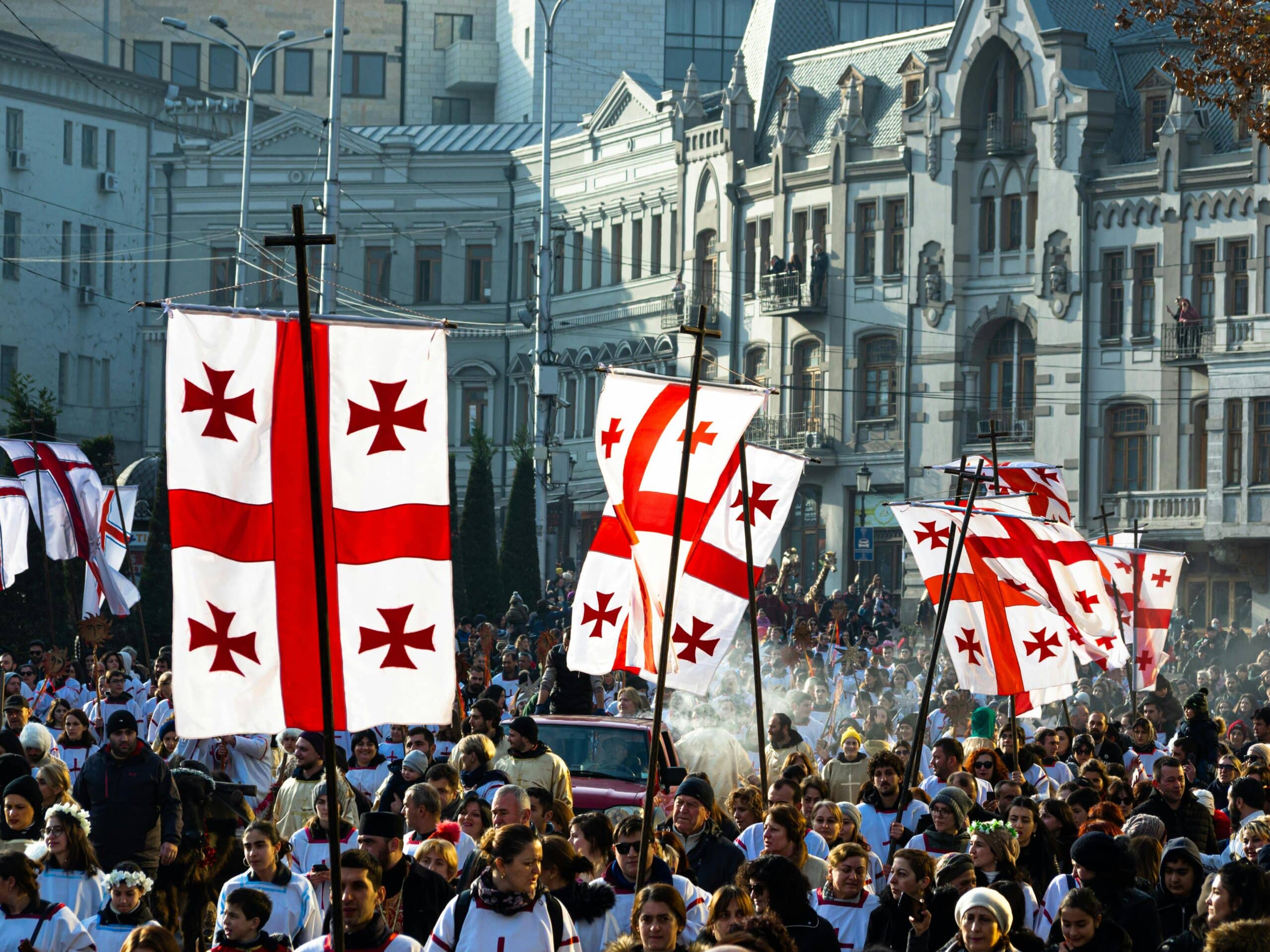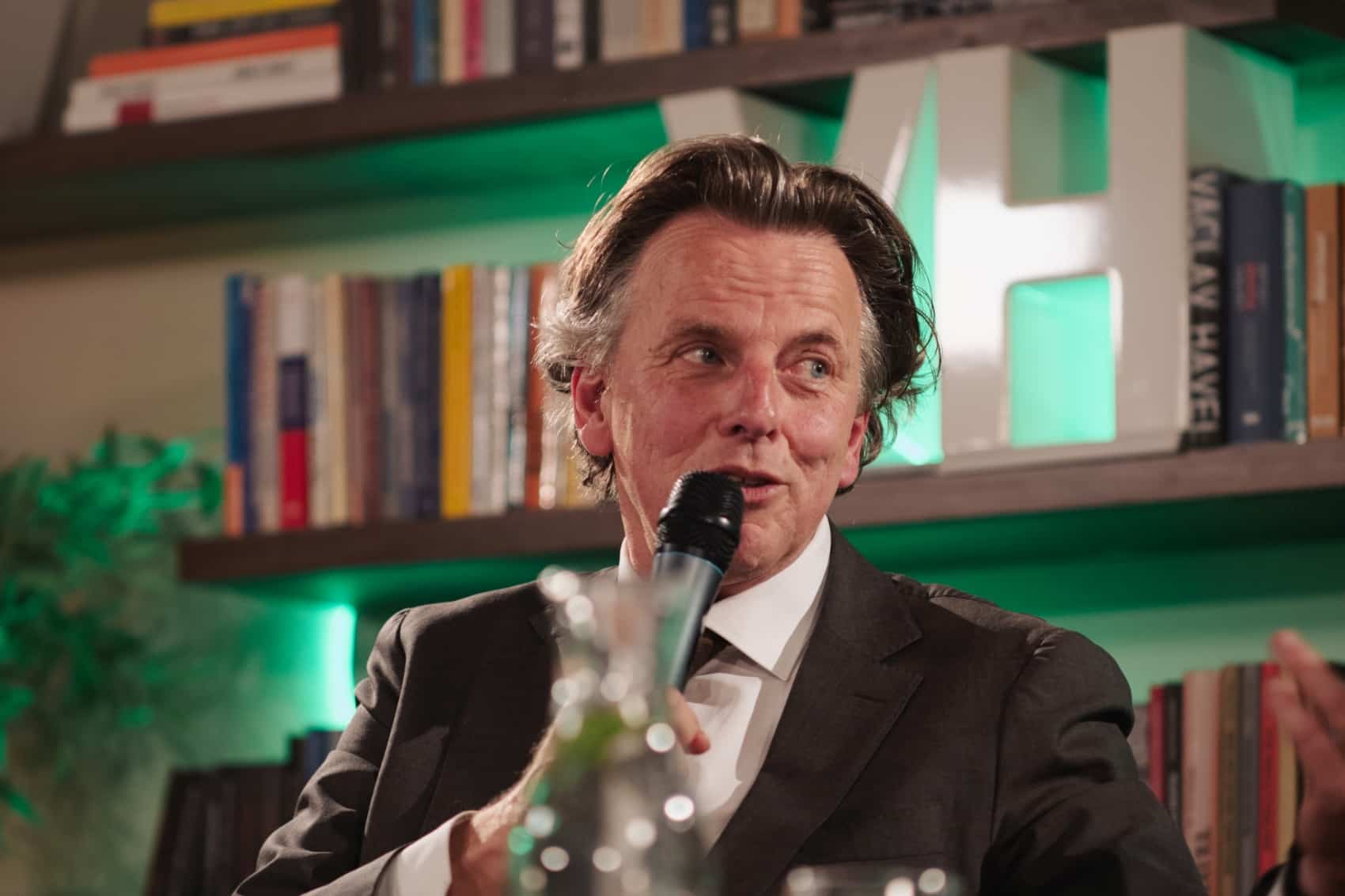People are still taking to the streets en masse in Iran for the biggest Iranian protests since the 1979 Islamic Revolution. The FMS organised a political café about this on 2 February. With a passionate and engaged audience, experts, politicians and representatives of the Iranian diaspora stressed the importance of continued support for the "young, fiery and strong" Iranian protesters.
The situation in Iran
That the Iranian protests - which have been in full swing since Mahsa Amini's death in September last year - can still count on a lot of attention in the Netherlands was once again highlighted by the high level of interest. The meeting, moderated by FMS director Kido Koenig, was divided into two parts.
First, Iran expert Damon Golriz (The Hague University of Applied Sciences) and filmmaker and publicist Beri Shalmashi discussed the current state of the protests. On why precisely Amini's death triggered something in so many different groups, Shalmashi said that Amini was a woman, Kurd and young, giving all kinds of groups reason to protest. Furthermore, Shalmashi did not find the long duration of the protests, which may cause outside attention to wane, worrisome: "Iranians are given time to think about which direction they want to take the revolution."
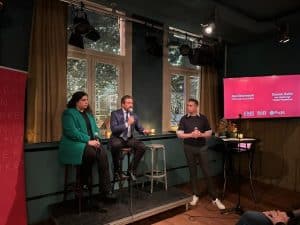
From left to right: Beri Shalmashi, Damon Golriz and Kido Koenig
So can the protests already be called a revolution? Golriz called it significant that the situation in Iran has been described as revolutionary by regime ally Russia. Both Shalmashi and Golriz mentioned the importance of the great diversity among the participating protesters. The protests are taking place both across the country and with the help of different demographic groups. Shalmashi: "For the first time, the Iranian people are truly united".
After several questions from the audience, an interview with MEP Thijs Reuten was played. Reuten, who was placed on a sanctions list by the Iranian regime despite this, showed himself combative. He revealed that he would not let sanctions stop him from supporting the Iranian protesters. "I remain committed to all the brave Iranians who keep taking to the streets". Reuten also advocated several times that the Iranian Revolutionary Guard should be placed on the European list of terrorist organisations. Watch the whole interview here.
Action from the Netherlands
The second part of the meeting focused on what can be done from the Netherlands to support the Iranian protesters. Golriz had also commented on this in the first part. He called the Netherlands a "forerunner" in dealing with the Revolutionary Guard, but also stressed that no more deals should be made with the regime: "The regime is weaker than it appears and must be put under pressure."
Meanwhile, Lower House member Kati Piri (PvdA), Woman Life Freedom founder Asefeh Eskandari and Haarlem city councillor Matin Abassi (PvdA) had joined in. They too agreed that there should be no more negotiations with the regime. Piri: "It is naive to think you can make good agreements with an autocratic country." Eskandari said he was happy with what had been set in motion from the Netherlands in a short time, but "at the same time, a lot more can still be done".
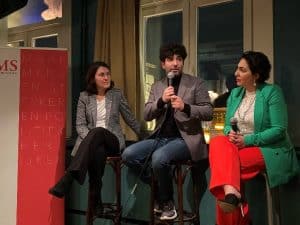
From left to right: Kati Piri, Matin Abassi and Asefeh Eskandari
Piri distinguished in the action from the Netherlands between helping the protesters in Iran and protecting the Iranian diaspora from "the long arm of Tehran". She pointed to two liquidations in the Netherlands in 2015 and 2017 that were almost certainly ordered by Tehran. Abassi also called for more protection for Iranian Dutch nationals and called for any signal of influence by Tehran to be reported. It was suggested that representatives of the Iranian diaspora should maintain short lines of communication with Dutch police and judiciary.
Another key viewpoint of the speakers present was that any support from the Netherlands, big or small, can help the Iranian protesters. Eskandari: "In Iran, we say that lambs can become lions. Hope does a lot to people. The moment the Revolutionary Guards are placed on the terror list, together we can make sure that all the lambs actually become lions." Abassi stressed the importance of support on a smaller scale, saying that the Dutch can do a lot for Iranians. "A retweet or a message of support to the people of Iran can already mean a lot."
All photos in this article were taken during the event by FMS

